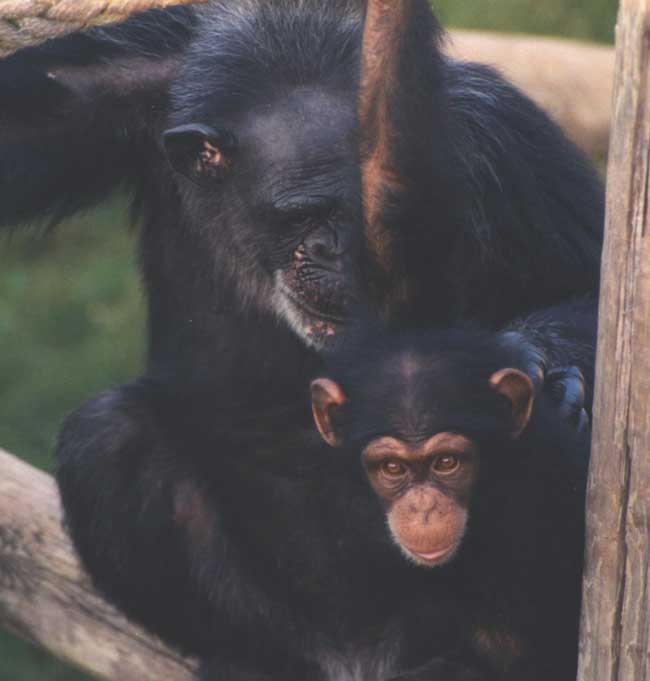Chimps Act Like Humans: Mine! Mine! Mine!

People often strangely consider something more valuable once they own it. Now scientists find this same apparently irrational behavior in chimps, a finding that could help shed light on the human mind.
For decades, researchers have puzzled over the fact that people often consider an item more valuable when it's theirs compared to how valuable they felt it was before they owned it. For instance, when college students were offered either a coffee mug or a chocolate bar, they had no strong preference for either, an experiment nearly 20 years ago suggested. However, when they were randomly given either the mugs or the chocolate, they strongly preferred keeping their new gifts to exchanging them for the other.
To investigate the roots of this apparently irrational behavior—dubbed the "endowment effect"—primatologist Sarah Brosnan at Georgia State University and her colleagues experimented with chimpanzees , humanity's closest living relatives .
Instead of mugs and chocolate, the researchers used frozen juice bars and tubes filled with peanut butter. Initially, they found the chimps roughly equally preferred either. However, when they were given the peanut butter, nearly 80 percent of them chose to keep it rather than exchanging it for a juice bar. Likewise, when given juice bars, almost 60 percent preferred to keep them instead of trading them.
"It is really exciting to see a behavior that has often been considered irrational in humans is also present in chimpanzees," Brosnan told LiveScience. "This helps us put the evolution of human behavior in perspective and may help us to understand why such behaviors would have evolved in the first place."
However, the researchers did not see this odd behavior when the chimpanzees were offered non-food items, such as rubber bones and knotted ropes. The fact that this strange effect apparently applies only for food and not other items suggests it developed to help aid survival, Brosnan said.
"Giving up something that could help with survival or reproduction may have been so risky that it wasn't worth doing even if there was the potential for something better," she explained. "This was probably true for humans until very recently—and may still be today in some situations—explaining why we still show the effect."
Sign up for the Live Science daily newsletter now
Get the world’s most fascinating discoveries delivered straight to your inbox.
By understanding how this behavior influences decisions regarding trade "in chimpanzees, we learn more about the social conditions our last common ancestor lived in and, hence, ourselves," Brosnan said. For instance, when it comes to laws regarding property, these findings suggest "we have evolved a strong bias against letting go of our property, so in law it is important to take this in to consideration and put mechanisms in place to ameliorate it."
Brosnan and her colleagues detailed their findings in the Oct. 9 issue of the journal Current Biology.
- Top 10 Missing Links
- Amazing Animal Abilities
- How Evolution Works











